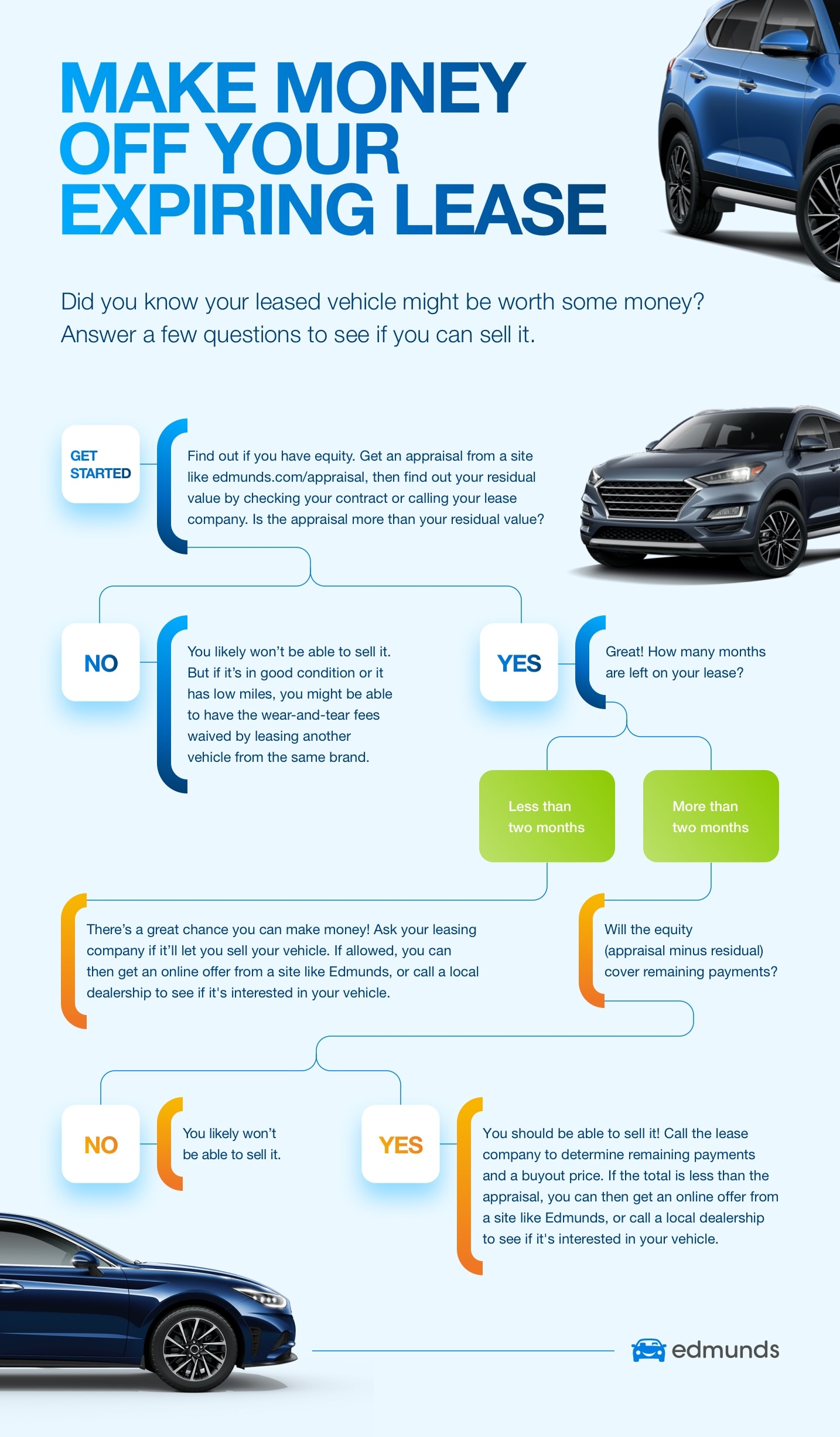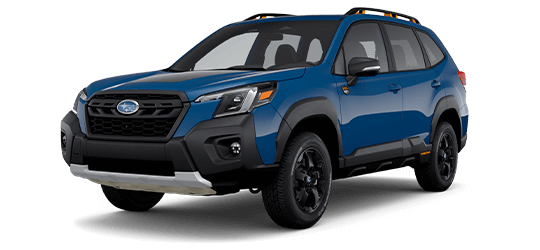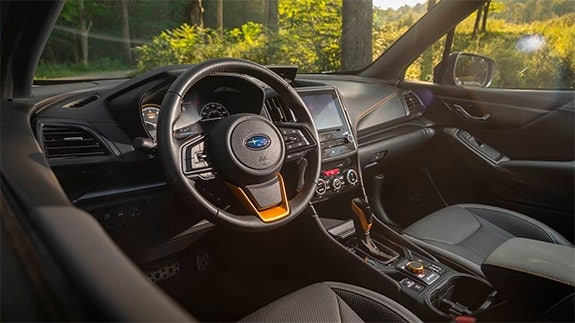With this in mind, you'll first need to determine if your current car lease has any equity. The residual value is also the amount you can buy the car for at the end of the lease, so you're looking to see if the car's current value is higher than the residual value. Since you usually have the right to buy the car at the end of the lease term for that residual value, you can profit from a lease company's inaccurate lower estimate. If, on the other hand, the car is worth less than the residual amount, you can turn the car in without incurring any extra expense.
What finance companies allow a lease buyout?
This strategy isn't quite available to everyone. A number of automotive finance arms do not allow a third-party buyout of the leased vehicle. And the list has grown in recent years, as dealerships that often relied on lease returns to stock their used car inventory now find themselves in serious need of cars to fill their lots and showrooms. Brands including Acura, BMW, Honda and General Motors changed their rules in 2021 to ban the sale of leased vehicles to third-party buyers. In other words, you could get your vehicle appraised on Edmunds to get an independent quote on its value, but you would not be able to redeem the offer at one of our participating dealerships. In this scenario, the remaining options would be to take your vehicle to any dealership of the same brand and get an offer for it, or else purchase it from the lease company directly. See steps two and three for more information.
We try to keep this list up to date, but rules are constantly changing. Please double check with your leasing company to know what your options are. Note that in some of the restricted cases below (e.g., Audi and Volkswagen), a third-party buyout may be allowed if the buyer is a dealership, not an individual. So be sure to read the fine print to be fully clear on your options.
Auto finance companies that have partial or complete restrictions on third-party off-lease buyouts:
Auto finance companies that have no significant restrictions on third-party off-lease buyouts:
-
Chrysler Capital (including Chrysler, Dodge, Ram, Jeep and Fiat vehicles)
-
Mitsubishi Motors Credit of America
-
Toyota Financial Services
Source: CarMax
Do I have equity in my lease?
If you want to make use of possible equity, your first stop should be Edmunds' car appraisal page. There, you can get the trade-in and private-party values of the car. We'll also give you the option to receive an instant offer on your vehicle, which gives you a solid price to have as a point of comparison.
Next, find the residual value in your lease contract. Subtract the residual value from the trade-in value and this is the approximate equity you might have. Knowing the current market value of your leased car and showing the dealership you've done your research on pricing will strengthen your negotiating position.
If your car is a year or more away from the end of the lease term and you want to check for current equity, call your leasing company and ask for a buyout price. Subtract the buyout price from the current market value of the car to see if you have equity.
3 ways to turn equity into cash
If you have equity in your leased car, here's how to turn it into cash. Keep in mind, though, that these strategies may not apply to everyone:
1. Sell your leased car and get a check. The fastest way to sell your leased car is to get an Edmunds instant offer, which is good for seven days and is redeemable at participating car dealerships. Just enter a few details about your vehicle and soon you'll have a price for your vehicle that can be paid out that same day. Not all leased vehicles have equity, of course. But as your lease return date draws near, keep an eye on its market value.
The used car superstore CarMax is another place where you can go to get equity from a leased vehicle. In most cases, you can sell your leased vehicle to CarMax in almost the same way as any other financed car, according to the company. It will appraise the car or truck, then contact the leasing company for a payoff quote and process any equity you might have.
You can also take your car to any other dealer, not just the one where you arranged the lease, and let the dealer buy the car at the trade-in price. The dealer will pay the leasing company what you owe and give you a check for the equity. However, don't expect the money immediately in this scenario. The dealership will mail you a check once it gets a clear title, assuring that your car doesn't have any outstanding parking tickets. Ask to get the trade-in agreement in writing and state the amount due to you, just in case.
2. Sell your leased car to a neighbor, friend or family member. This method requires a bit of trust, so it helps to sell your car to someone you know. But you can sell to any buyer you find, and you'll be able to get the private-party price for the car, which is higher than the trade-in price that dealers pay.
Here's what you do: After finding a trusted buyer, have that person mail a check for the buyout amount to the leasing company. Once you receive the title (the leasing company will only send it to the person leasing the car), sign it to release your interest in the vehicle, and give the title to the buyer. The buyer can then register the car and pay sales tax at that time. But be careful: If the buyer waits longer than 10 days, the state might try to charge you both sales tax, which would wipe out your profit.
A way to prevent this situation, according to the Auto Club of Southern California, is to pay the sales tax and DMV fees as soon as possible and then return to the DMV to conclude the deal with the title in hand. This transaction is called a "lease buyout transfer." Contact your state's DMV for more details.
3. Use the equity as the down payment on your next car. In this scenario, the equity in your current car becomes a cash down payment for the new one. Once you know you have equity, you can take your car to any dealer to begin a new lease or sales contract. In fact, used car prices are so good now that they will soften the blow of buying or leasing a new one since roughly 80% of car shoppers today are paying over MSRP. Not all dealers will offer you the same amount for your leased-car buyout, so you might have to shop around for the best offer. The amount should be close to or better than the Edmunds trade-in price.
Dianne Whitmire, fleet and internet director for West Coast Toyota in Long Beach, California, said she uses the equity in returning lease cars to help her customers in a variety of ways. She had one customer with two cars — one was a leased vehicle with equity and one a purchased car that was "upside down," meaning that the loan balance was greater than the car was worth. "In that case, one washes the other" to pay off the loan, she explains. Experts say you might get more money if you are going "brand to brand," meaning selling a Toyota to a Toyota dealership, although any dealership can handle the transaction.
It's important to make sure all the numbers add up. Agree on the exact amount of equity you will receive and look for that amount in the down payment box on the contract. Alternatively, you can also use the equity to pay the fees required to begin a new lease rather than pay that money out of pocket. Finally, if you live in a state that allows a trade-in vehicle to reduce the sales tax, you may want to chat with the dealership to see what the best option is. See this article for more on which states allow this.
Which vehicles have the most equity for 2023?
Edmunds analysts looked at the estimated residual values for 2019 model year vehicles leased in January and February of 2019 and compared those residuals to the trade-in values for similar vehicles that were traded in during January and February of 2022. Edmunds data showed that, on average, the trade-in value for a 2019 vehicle whose lease ended in 2022 reflected an increase of $7,208, or 33%, compared to its original estimated residual value.



 by
by 
